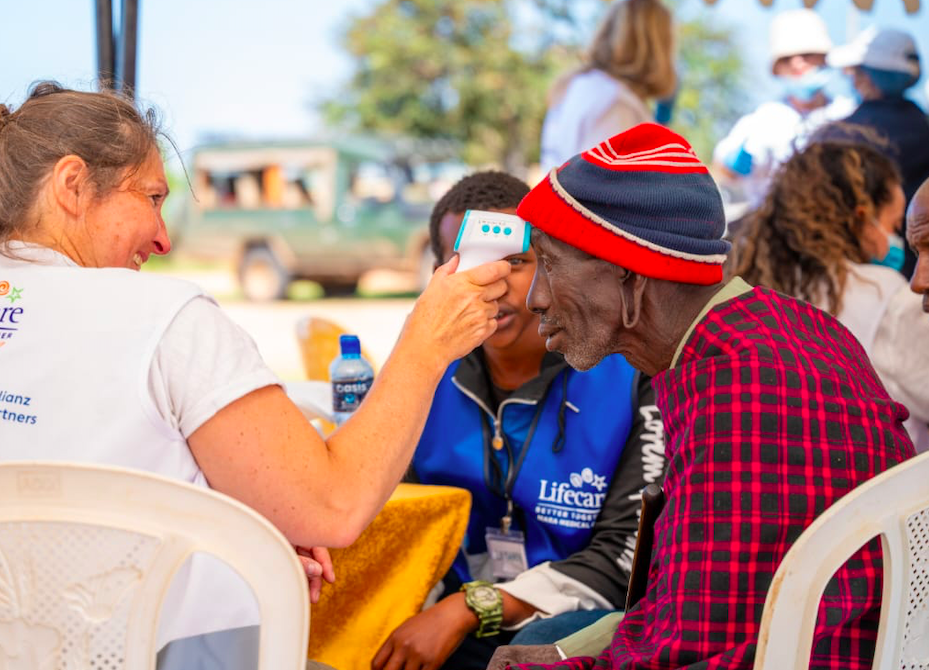
EVEN if a specialist were offering free or subsidised health services in rural Kenya, punishing distances would prevent thousands of patients who need such services from accessing them, experts say.
The national average distance to the nearest public health facility in Kenya is about 9km, and about 50km in remote counties like Mandera, West Pokot, Garissa, and Wajir.
This is according to the Kenyan Health Sector Strategic Plan, which recommends no more than 5km (or one hour) walking distance to such facilities.
“Many specialists abroad are willing to offer disadvantaged groups the kind of medical attention they need but cannot get at home. What has, however, been missing is a way to connect these specialists with the patients,” said Alniz Popat, the chief executive officer of Lifecare International.
Popat said the combined barriers of geography and costs have resulted in delays in diagnosis of curable illnesses such as cancer, heart disease and chronic respiratory illnesses in rural Kenya.
He referred to “Financial and geographic barriers to healthcare access in Kenya,” a 2022 study which showed a higher probability of failure to seek health services for every one kilometre a Kenyan has to travel.
“Longer distances would imply more transportation costs, which then drive up the total cost of treatment beyond the reach of many,” said the two authors Brian Odhiambo and Purity Kagendo, both research fellows at the Kenya School of Government.
“Counties also need to adopt the use of mobile clinics to enhance primary healthcare access,” they advised.
According to the Kenya National Bureau of Statistics, out of about 13,000 doctors who work in Kenya, only about 2,000 (16 per cent) work in rural areas, leaving a substantial number of rural residents with limited access to medical care.
“This has contributed to the high mortality rates in rural areas,” Popat said.
He said innovative solutions such as telemedicine and mobile health clinics, that can help bridge the gap created by geographic isolation, are essential.
He spoke during this year’s edition of the Better Together Mara Medical Camp, held in Maasai Mara in Narok county by Lifecare International, through HealthX Africa’s virtual clinic platform.
The Healthx Africa platform enabled patients from the remote parts of Narok county to consult with medical specialists from around the world.
Services included general consultations, ENT check-ups, ECGs, dental and optical care, and treatment for non-communicable diseases such as diabetes and hypertension.
The cross-border medical collaboration between Kenyan and international doctors saw medical teams perform more than 500 optical procedures, 64 tumour removals, 73 cataract extractions, 240 dental procedures and two cleft lip reconstructions.
This year’s camp also featured a ward for women and children, prioritising essential services such as breast cancer screenings, gynaecology consultations and paediatric care.
“Remember, we have one life, one chance, let us get it right. Not just for us but for those less fortunate. So let us work hard, play hard and serve hard,” Popat said.
Now in its sixth year, the 2025 edition held at the Enkitoria Oloolaimutia Medical Centre in Narok West on June 2-3 reached more than 4,000 individuals, bringing the total number of beneficiaries since the initiative began to 16,500.
The camp was presided over by Narok Governor Patrick Ole Ntutu, who called on more organisations to support such initiatives, because of the role they play in bridging access to healthcare gaps for people living in rural Kenya.
The initiative was supported by partners including Allianz Partners, Bupa Foundation, Tipilikwani, Action in Focus, Cigna, Emica Executive Coaching & Healthcare Consulting, King’s College Hospital, Taiba, Cheps, Aga Khan Hospital and HealthX.










![[PHOTOS] Elgeyo Marakwet landslide victims arrive in Eldoret for care](/_next/image?url=https%3A%2F%2Fcdn.radioafrica.digital%2Fimage%2F2025%2F11%2F425460d9-7ff1-4975-8a1f-cd0aaefb7812.jpg&w=3840&q=100)

